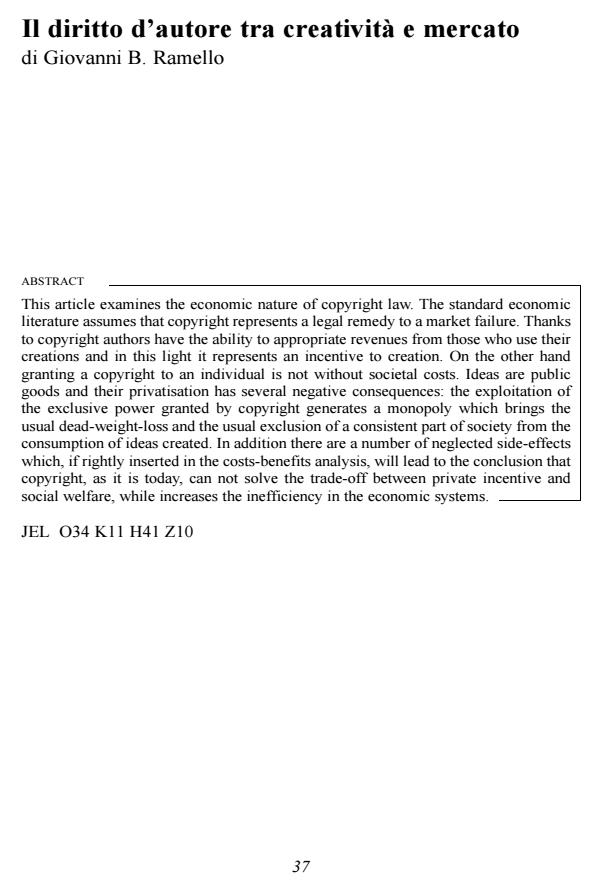Il diritto d'autore tra creatività e mercato
Journal title ECONOMIA PUBBLICA
Author/s Giovanni B. Ramello
Publishing Year 2001 Issue 2002/1
Language Italian Pages 30 P. File size 158 KB
DOI
DOI is like a bar code for intellectual property: to have more infomation
click here
Below, you can see the article first page
If you want to buy this article in PDF format, you can do it, following the instructions to buy download credits

FrancoAngeli is member of Publishers International Linking Association, Inc (PILA), a not-for-profit association which run the CrossRef service enabling links to and from online scholarly content.
This article examines the economic nature of copyright law. The standard economic literature assumes that copyright represents a legal remedy to a market failure. Thanks to copyright authors have the ability to appropriate revenues from those who use their creations and in this light it represents an incentive to creation. On the other hand granting a copyright to an individual is not without societal costs. Ideas are public goods and their privatisation has several negative consequences: the exploitation of the exclusive power granted by copyright generates a monopoly which brings the usual dead-weight-loss and the usual exclusion of a consistent part of society from the consumption of ideas created. In addition there are a number of neglected side-effects which, if rightly inserted in the costs-benefits analysis, will lead to the conclusion that copyright, as it is today, can not solve the trade-off between private incentive and social welfare, while increases the inefficiency in the economic systems.
Giovanni B. Ramello, Il diritto d'autore tra creatività e mercato in "ECONOMIA PUBBLICA " 1/2002, pp , DOI: